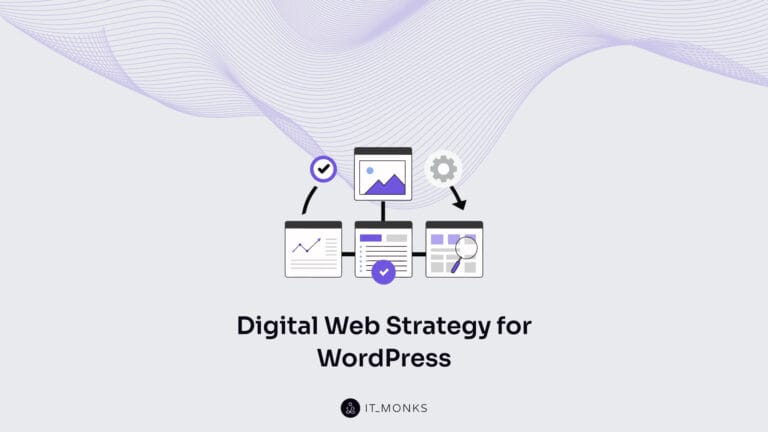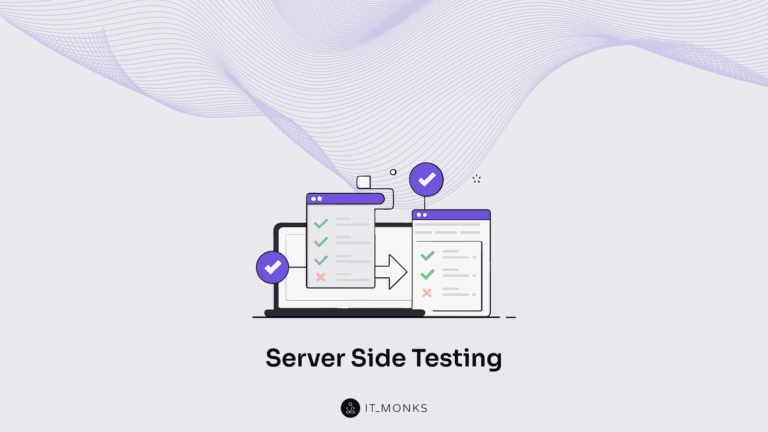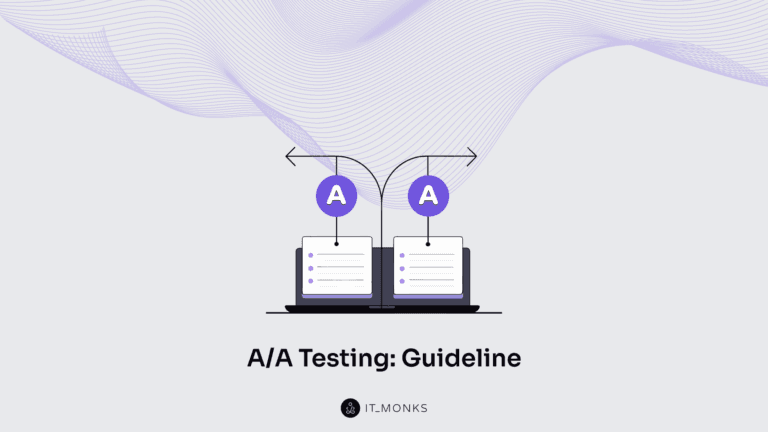How to Become a WordPress Developer: A Comprehensive Guide
Table of Contents

WordPress development is a highly sought-after field due to its significant market presence and large user following. With WordPress powering nearly half (43.2%) of all websites, its popularity, wide range of customization options, and robust community support contribute to the strong demand for WordPress developers. According to PayScale’s data, the average yearly salary for a web developer in the United States in 2024 is $64,089. This guide will walk you through the key job responsibilities of a WordPress developer and provide 10 essential steps to become an expert in this field.
What is a WordPress Developer?
A WordPress developer is an expert specializing in the WordPress platform’s infrastructure and ecosystem. They focus on enhancing the WordPress software or creating new products like plugins and themes. Additionally, they collaborate with clients to develop, customize, and oversee a WordPress site. WordPress development encompasses various areas. Some developers contribute to the platform by creating blocks, plugins, themes, and other tools that extend its capabilities or by contributing to the WordPress Core. Others assist clients in building and maintaining their sites – many developers do both.
Despite users’ ability to extend functionality without coding skills through plugins or customization via themes without touching code directly, seeking out developers remains common due to potential technical challenges like securing sites or customizing complex themes that can arise over time.
Where do WordPress Developers Work?

A WordPress developer may work for a company or opt for freelance work. For freelancers, various job platforms, such as WordPress Jobs and Codeable.io, link them with potential clients. Alternatively, aspiring WordPress developers who prefer not to freelance can find opportunities with software development companies, digital marketing agencies, and SaaS management businesses.
Corporate Companies
Corporate companies often employ WordPress developers to maintain and enhance their online presence. Working in a corporate setting provides stability, benefits, and opportunities for career advancement. However, developers may work on large, complex projects with bureaucratic processes, which can slow down decision-making and innovation.
- Pros: Stability, benefits, career advancement opportunities.
- Cons: Bureaucratic processes, large and complex projects.
Large Agencies
Large agencies typically handle multiple clients and projects simultaneously, offering WordPress developers diverse work. They often have well-established workflows and resources, but developers may face high-pressure environments and tight deadlines.
- Pros: Diverse projects, well-established workflows, and resources.
- Cons: High-pressure environments, tight deadlines.
Small Agencies
Small agencies offer a more intimate work environment where developers can work closely with clients and perform various tasks. However, resources may be limited, and there could be fluctuations in workload.
- Pros: Intimate work environment, close client interaction.
- Cons: Limited resources and workload fluctuations.
Government Digital Services
Government digital services employ WordPress developers to build and maintain websites and applications for public use. Working in this sector offers the opportunity to contribute to projects with a societal impact. However, developers may encounter bureaucratic processes and strict regulations.
- Pros: Societal impact, meaningful projects.
- Cons: Bureaucratic processes, strict regulations.
Freelance Work
Freelance WordPress developers can choose their clients and projects, offering flexibility and autonomy. They can work remotely and set their schedules. However, freelancers must independently handle client acquisition, project management, and financial aspects.
- Pros: Flexibility, autonomy, remote work.
- Cons: Client acquisition, project management, financial responsibilities.
Distributed Agencies
Distributed agencies operate with remote teams spread across different locations. They offer the benefits of remote work while still providing the structure and support of an agency environment. However, communication challenges and time zone differences may arise.
- Pros: Remote work, agency support.
- Cons: Communication challenges and time zone differences.
WordPress Developer Job Outlook
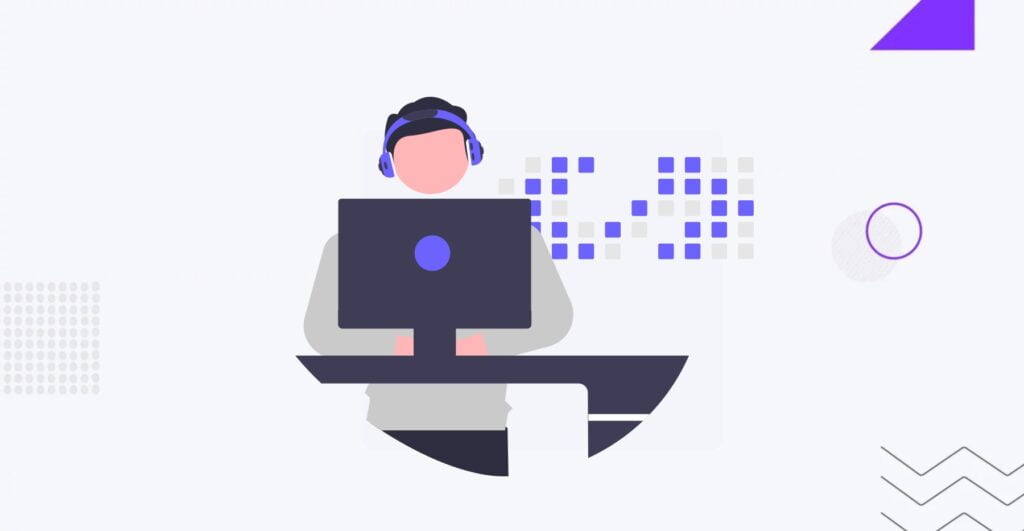
WordPress, a world-known content management system (CMS), it suits e-commerce website and blog development alike. For 12 years, WordPress has been the fastest-growing CMS and has firmly established its position in the market. The job market for WordPress developers is also rapidly expanding. According to the US Bureau of Labor Statistics (BLS), there is an expected 13 percent growth in employment for web developers and digital designers from 2020 to 2030, averaging around 17,900 job openings annually.
What Does a WordPress Developer Do?
A developer typically handles the WordPress back-end or WordPress front-end development, including creating custom themes and plugins. They may also be tasked with building sitemaps or wireframes, migrating existing sites to the platform, and optimizing SEO and conversion rates through redesigns. Additionally, they might review and debug the official WordPress codebase to improve the software for all users.
This only scratches the surface of their work. For a more in-depth understanding of this role, let’s examine an actual job description for a WordPress developer posted on Indeed.com. For a broader overview of what WordPress developers do, you can explore services offered by design agencies specializing in WordPress, such as IT Monks.
How Much Does a WordPress Developer Make?
The average salary of a WordPress developer in the United States as of 2024 is approximately $84,542 per year or $49.00 per hour. However, this figure can vary significantly based on experience, skills, and location.
For example, ziprecruiter.com reports an average annual salary of $101,920. In the U.S., most WordPress Developer salaries currently range between $60,500 (25th percentile) to $99,500 (75th percentile), with top earners (90th percentile) making up to $1480 annually.
Looking ahead to future estimates, the salary for a senior WordPress developer is expected to increase from an average of around $171,057 in 2024 to $182,469 in 2029.
It’s essential to consider several influencing factors when interpreting these figures:
- Experience and Skills: More experienced developers with a broader skill set typically command higher salaries.
- Geographical Location: Salaries can differ significantly depending on the living costs in specific areas; for instance, a Los Angeles-based WordPress developer earns an average hourly rate of about $60.25.
- Freelance vs Full-Time Work Arrangements: Many WordPress developers operate independently, which means their earnings fluctuate based on project volume and type.
- Specialization: Focusing on particular areas within WordPress development, such as theme or plugin creation, may result in higher earning potential than generalist roles.
Related Roles
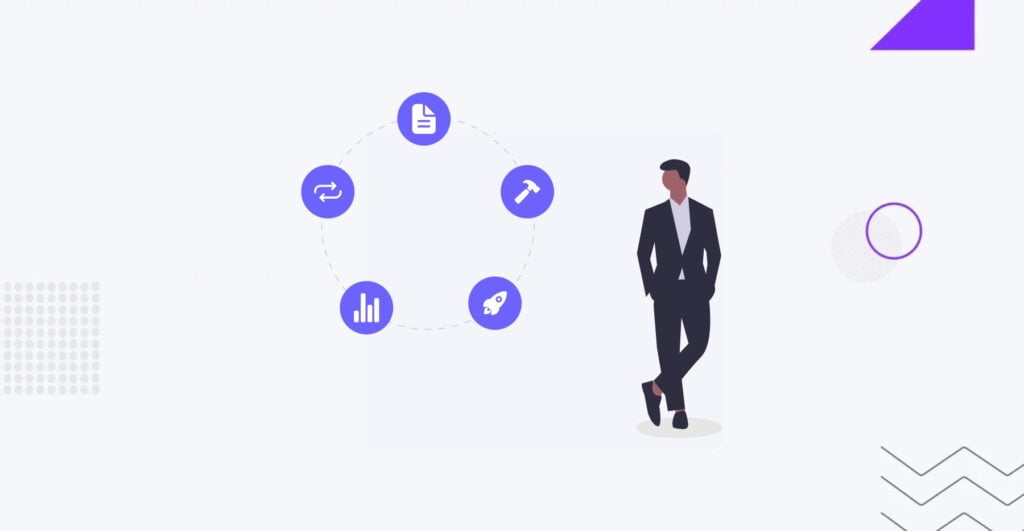
WordPress developers possess specialized skills, but there are various related roles in web development and IT services. These roles encompass:
Front-end web developer
This role involves implementing a website’s visual and interactive components that users directly engage with.
UI/UX designer
UI/UX designers focus on curating user interaction with websites or software products, ensuring a smooth and intuitive user experience.
E-commerce developer
WordPress ecommerce development involves creating and managing online stores and payment systems within WordPress or other platforms.
Database Administrator
Responsible for managing databases used by WordPress websites to ensure efficiency, security, and data integrity.
Technical support specialist
They assist users with technical issues, troubleshooting, and maintaining WordPress websites.
These roles are often interconnected and may collaborate closely in IT companies such as IT Monks, which offer comprehensive custom WordPress development services covering various stages. As a WordPress developer, you might work within such companies, collaborating with specialists mentioned above to deliver complete solutions to clients.
How to Become a WordPress Developer in 10 Steps
Given the versatility of their role, it can be challenging to know where to start gaining the skills and experience necessary for a career as a full-time professional or part-time freelancer in this field. To ease into this journey without feeling overwhelmed, we’ll guide you through basic steps towards becoming a successful WordPress developer.
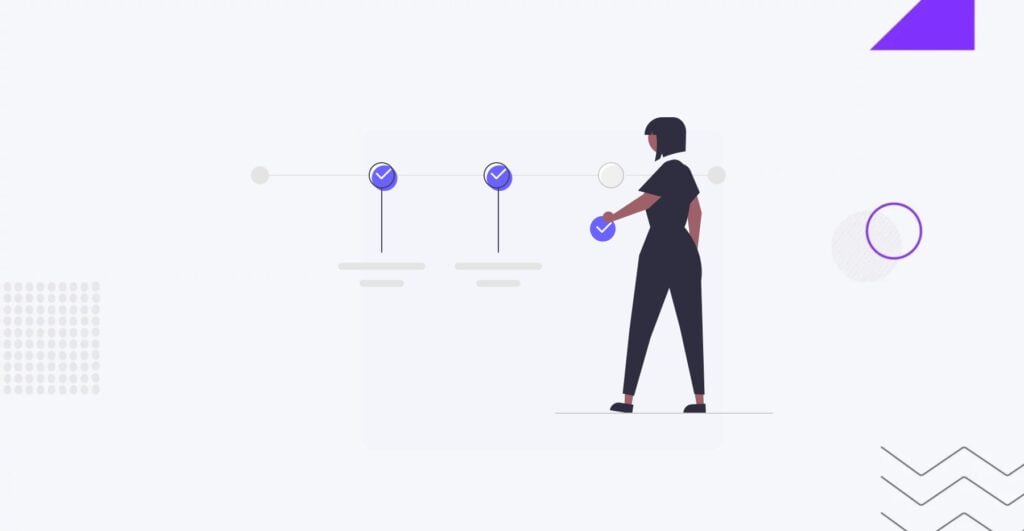
1. Learn the Basics of Web Development
Learn WordPress development starting from the basics. To kickstart your journey as a WordPress developer, it’s crucial to grasp the fundamentals of web development. Begin by acquainting yourself with HTML, CSS, and JavaScript—the building blocks of the web. HTML provides the structure, CSS adds style and layout, while JavaScript enhances interactivity and functionality.
2. Understand WordPress Fundamentals
Familiarize yourself with the core concepts of WordPress by delving into its documentation and resources. Start by creating your first WordPress website to gain hands-on experience and understand how WordPress operates.
3. Get Comfortable with the WordPress Admin Interface
Mastering the WordPress admin interface is essential for efficiently managing and customizing WordPress websites. Learn how to navigate the dashboard, configure settings, create and edit content, install themes and plugins, and manage user roles.
4. Learn PHP
Understand the role of PHP in WordPress development, as it serves as the platform’s backbone. Dive into PHP programming to grasp concepts like loops, functions, and conditional statements, which are integral to developing WordPress themes, plugins, and custom functionalities.
5. Explore WordPress Themes
Study WordPress themes to understand their structure, components, and customization options. Learn how to create bespoke themes tailored to specific design requirements and explore techniques for optimizing theme performance and responsiveness.
6. Master WordPress Plugins
Delve into WordPress plugins to enhance website functionality and extend WordPress capabilities. Learn how to download, install, configure, and customize plugins, and consider developing your plugins to address unique project requirements.
7. Explore Advanced Topics
Dive deeper into advanced WordPress topics such as custom post types, taxonomies, and custom fields to expand your skill set. Additionally, familiarize yourself with the WordPress REST API to leverage its capabilities for building interactive and dynamic web applications.
8. Stay Updated with WordPress Trends
Stay abreast of the latest developments and trends in the WordPress ecosystem by actively engaging with blogs, forums, social media communities, and industry publications. Continuous learning and staying updated with emerging technologies and best practices are essential for thriving as a WordPress developer.
9. Networking
Build a strong network within the WordPress community by connecting with other professionals, attending local meetups, participating in WordCamps, and engaging in online forums such as WordPress.org. Networking provides opportunities for collaboration, knowledge sharing, and professional growth.
10. Consider WordPress Certifications
Explore WordPress developer courses and certification programs offered by organizations and online platforms to validate your WordPress skills and expertise. A WordPress certification can enhance your credibility, open up career opportunities, and demonstrate your proficiency to potential clients and employers.
Types of WordPress Developers
There are several work options and methods available for WordPress developers. Although each job and work environment is different, we will discuss some important categories of WordPress developers.
Core Developer
These experts oversee the WordPress core, encompassing the software accessible on the platform. They can examine and enhance code despite WordPress employing its team of developers. Core developers usually initiate or suggest modifications for the WordPress core, often impacting the entire platform.
Theme Developer
Theme developers specialize in crafting personalized themes to elevate websites’ visual appeal and brand identity. Their creations are tailored to embody a distinct look and atmosphere that aligns with the client’s brand image. These professionals may distribute their themes for free through the Theme Directory or sell them on various third-party platforms.
Plugin Developer
WordPress plugin development involves crafting personalized plugins for customers and employers. These plugins are designed to enhance or modify the performance of WordPress websites. In some cases, plugin developers may offer their creations in the Theme Directory at no cost for others to utilize, or they may choose to sell them on various third-party platforms.
Security Expert
A WordPress Security Expert specializes in identifying and resolving security issues in the core software available for distribution and installation at WordPress.org. They perform a security analysis, also known as an audit, to ensure comprehensive protection for your website. Their responsibilities include timely detection and removal of hidden threats to safeguard the site from potential harm and disruption.
Enterprise Developer
Enterprise WordPress development is focused on building and overseeing large-scale WordPress setups for big businesses and corporations. Their role involves ensuring top performance and availability, integrating with other enterprise systems, implementing advanced features, and upholding security and compliance standards.
Conclusion
Consider the fundamental steps to becoming a WP developer discussed in this guide. Becoming a WordPress developer can be both profitable and enjoyable as a career choice. While it demands investment in learning and experimenting, it can provide the income and flexibility you desire. Earning a degree in coding or a related field can help you acquire the essential skills for entering WordPress development roles soon after graduation. Additionally, post-secondary education in a related field can enhance your resume with valuable credentials.
FAQ
- Are WordPress developers in demand?
WordPress developers are in high demand. With WordPress powering almost half (43.2%) of all websites, its popularity, extensive customization options, and strong community support contribute to the high demand for WordPress developers. Companies and independent freelancers seek WordPress developers due to the substantial market share and large user base WordPress attracts.
- Can you make money as a WordPress developer?
According to PayScale’s data, the average annual WordPress developer salary in the United States in 2024 is $64,089. However, salaries for WordPress developers can vary based on experience, skills, and location. Additionally, many WordPress developers opt for freelance work, offering flexibility and autonomy in setting their schedules and choosing projects.
- Do WordPress developers code?
WordPress developers do code. They typically work with languages such as PHP, JavaScript, HTML, and CSS to develop custom themes, plugins, and functionalities for WordPress websites. While users can customize WordPress sites without coding skills through plugins or themes, developers are often sought out for tasks requiring coding expertise, such as securing sites or customizing complex themes.
- How long does it take to become a WordPress developer?
The time it takes to become a WordPress developer can vary depending on prior experience, learning pace, and dedication. However, by following a structured learning path and gaining experience through practice, individuals can acquire the necessary skills to become proficient WordPress developers in months to a few years. Continuous learning and staying updated with WordPress trends and technologies are essential for ongoing professional growth in this field.
Contact
Don't like forms?
Shoot us an email at [email protected]

